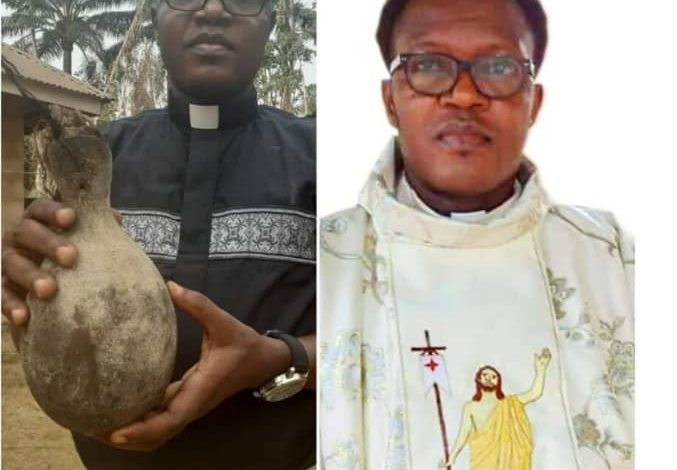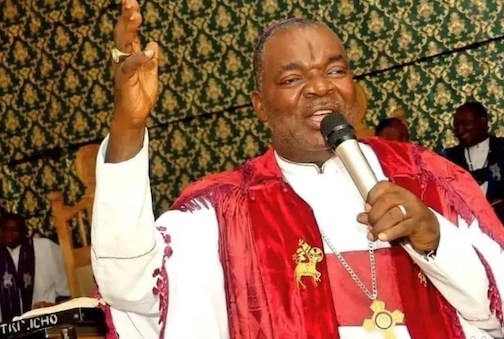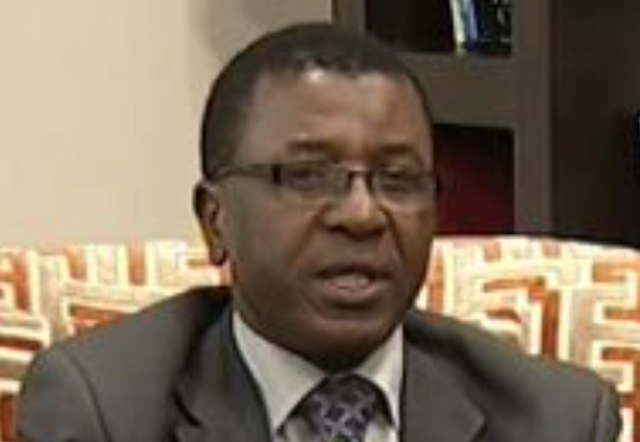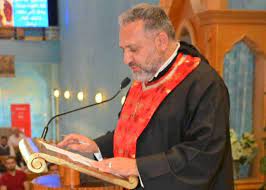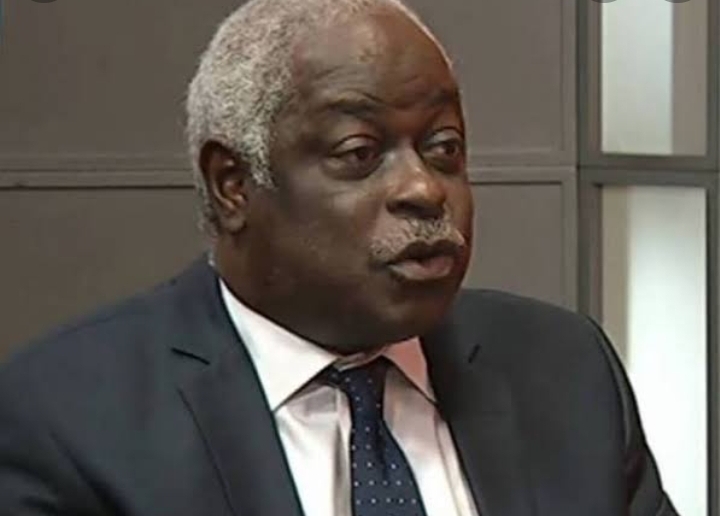The bill emanating from the Senate seeking to create a National Council to regulate the practice of Christianity in Nigeria, setting standards and modalities for the practice of Christianity in Nigeria, as well as creating curricula for the practice of Christianity in Nigeria is, with the greatest respect to the sponsors and financial backers of the bill, a violation of sections 34, 35, 37, 38, 39, 40, 41, and 42 of our 1999 Constitution and Articles 2, 8, 9, 17, 18, 27, 28, and 29 of the African Charter on Human & Peoples’ Rights (Ratification Enforcement) Act. Titled “A Bill to Establish the National Council for Christian Education for the Purpose of Regulating and Setting Standards and for Related Matters, 2023,” the bill is sponsored by Senator Binos Dauda Yaroe, representing the Adamawa South Senatorial District, and it has already scaled Second Reading in the Senate. I pray that Senator Yaroe and the Senate announce the date for the Public Hearing of the bill to give the public the opportunity to clearly state the demerits of the bill.
A copy of the 9-page bill is right in front of me for review. Essentially, this bill seeks to establish the National Council, to be funded by the Federal Government, whose main responsibility shall be “to develop, regulate, collate data on Christian education syllabuses at all levels of education and certify Christian Religious Education instructors at all basic and secondary school levels; approve the content of all Christian Religious Education in schools across the country; accredit programs of Christian Theological Institutions of Learning and train, retain, and recertify Christian Religious Instructors in schools.” In other words, if passed into law and signed by the President, the import and purpose of the bill is that the syllabuses of all Christian primary schools, secondary schools, and universities such as Redeemer’s University, Ede, Lagos, Covenant University, Ota, Madonna University, Okija, Babcock University, Ilishan-Remo, Ogun State, Augustine University, Epe, Lagos, Caritas University, Amorji-Nike, Enugu, and so forth shall be formulated, approved, and regulated by the Council. Similarly, the syllabuses of all Christian seminaries such as Bigard Memorial Seminary, Enugu, SS. Peter & Paul, Bodija, Ibadan, All Harrows Seminary, Onitsha, Baptist Theological Seminary Kaduna, Bethel Institute of Theology and Biblical Research, Harvesters International Theological Seminary, International Institute of Divinity and Theological Seminary, Bible Life University of Theology, and so forth shall be formulated, approved, and regulated by the Council. More importantly, if Senator Yaroe’s bill is passed into law, the mode of Christian worship in all Christian churches in Nigeria, such as the Catholic Church, Anglican Church, Baptist Church, Methodist Church, Redeemed Christian Church of God, Christ Embassy Church, Mountain of Fire and Miracles Ministries, Winners Chapel and so forth, shall be formulated, approved, and regulated by the Council. Additionally, the training, licensing, certification, and posting of Catholic priests, Anglican priests, Methodist pastors, Protestant pastors, Pentecostal pastors, and so forth shall be the responsibility of the Council.
As I have stated earlier, this bill is a great violation of religious freedom, the right to freedom of religious worship, and the secularity (in contrast to secularism) of the Nigerian State as enshrined in our 1999 Constitution. The bill is also incompatible with cherished human values enshrined in many African and international human rights instruments subscribed to by Nigeria. Consequently, the bill lacks merit and public consideration and should therefore be dismissed by the Senate. Apparently foreseeing that the bill would provoke national outrage, the sponsor of the bill and his backers organized a public Zoom meeting on the bill last week. Eighty percent of us who attended that Zoom meeting clearly made it known to the bill sponsor and his backers that the bill lacked merit and would neither sail in the Senate nor in the House of Representatives, let alone in the public. I imagine that by now, the bill sponsor Senator Yaroe has withdrawn the bill to avoid further embarrassment and failure, for which he would be forced to do so sooner or later.
It is preposterous that in a multi-religious and secular state such as Nigeria, a Senator of the Federal Republic of Nigeria, who ought to know better, is fanning the embers of toxic religious inflammation and religious war by sponsoring a bill that infringes on the citizens’ right to freedom of thought, conscience, and religion, as well as unjustified intrusion of the State into the practice of the Christian religion. Our Supreme Court, in the case of Medical and Dental Practitioners Disciplinary Tribunal v Dr. John Emewulu Nicholas Okonkwo (2002), held that the import of the fundamental human rights to privacy (section 37) and the right to freedom of thought, religion, and conscience (section 38) as enshrined in our 199 Constitution is that the State is forbidden from setting standards or modalities for the practice of the Christian religion, questioning or setting standards on the courses of the citizens’ religious life, or interfering with the ways in which the citizens have fashioned out to practice their religion.
It is noteworthy that Nigeria has since ratified and domesticated the African Charter on Human Rights. Consequently, the articles of the African Charter apply in Nigeria. The African Charter contains political and civil rights, as well as the right to work, freedom of association, the right to representation in public office, the right to religious education, the right to health, the right of equal access to public property, and the rights of women and children recognized in all international conventions and treaties. See the case of Attorney-General of Ondo v Attorney-General of the Federation, where the Supreme Court held that the Fundamental Objectives and Directive Principles of State policy, which include the right to religious education, apply to all organs of government, authorities, and persons exercising legislative, executive, and judicial powers, and that the Fundamental Objectives do not distinguish between federal, state, and local governments. Also, see the case of Archbishop Anthony Olubunmi Okogie [Trustee of Roman-Catholic School v. Attorney-General of Lagos State, where the government of Lagos State enacted an Education law under which it closed privately owned and religious schools, including schools owned by the Catholic Archdiocese of Lagos. Archbishop Okogie took the Lagos State government to court and successfully obtained a declaration that the action of the Lagos State government offended the constitutional right of the Lagos Catholic Archdiocese to own schools and operate them under the tenets and teachings of the Roman Catholic Church
It must be pointed out that Senator Yaroe’s Bill flagrantly violates the Christians’ right to freedom from discrimination on the grounds of religion as enshrined in section 42 of the 1999 Constitution. Nigeria is a multi-religious, multi-lingual, and multi-ethnic society with many religions. Why should Senator Yaroe and his backers single out the Christian religion for regulation, control, intimidation, manipulation, and asphyxiation? Certainly, Senator Yaroe’s Bill is an exercise in religious bigotry and religious intolerance. Life is live and let live. We are all members of the same human family. Therefore, waging an insidious war against the Christian religion for no reason is a betrayal of our humanity.
By sponsoring a bill to regulate Christianity or set standards for the practice of Christianity, Senator Yaroe failed to understand the separation of the state and church, also known as the separation of religion and government in a presidential democracy and secular state such as ours. He doesn’t understand that the functions and responsibilities of the state and the church should be kept separate and that the government should not promote or favor any particular religion or religious institution, let alone delve into prescribing syllabuses and modes of worship for any particular religion.
One of the earliest significant events in this process of separating the state from the church was the Edict of Milan, which was issued in 313 AD by the Roman Emperor Constantine I. The Edict granted tolerance to Christians throughout the Roman Empire, effectively ending the persecution of Christians and allowing them to practice their religion freely. However, prior to the Edict of Milan, Christianity had been a persecuted minority religion in the Roman Empire. The Emperor Nero had blamed Christians for the great fire of Rome in 64 AD, and subsequent emperors continued to persecute Christians for their refusal to worship the Roman gods.
However, in the early 4th century, Constantine I became the first Roman Emperor to convert to Christianity. He issued the Edict of Milan as a way to grant freedom of worship to Christians and end their persecution. While the Edict of Milan was a significant step towards religious tolerance, it did not necessarily represent a complete separation of state and church. In fact, Constantine himself continued to use his power and influence to promote Christianity and shape the Christian church. He called the Council of Nicaea in 325 AD, which was a gathering of Christian bishops that established the basic tenets of Christian doctrine and affirmed the divinity of Jesus Christ.
Over the centuries that followed, the relationship between the state and the church continued to evolve. In Europe, the Catholic Church played a significant role in the political and social order. This led to tensions between the church and the state, as well as periods of conflict such as the Investiture Controversy in the 11th and 12th centuries. Happily, in the modern era, the idea of the separation of church and state has become enshrined in many legal systems around the world. In the United States, the First Amendment to the Constitution guarantees freedom of religion and prohibits the government from establishing a state religion. The US Constitution’s First Amendment includes a clause known as the Establishment Clause, which prohibits the government from establishing an official state religion or giving preference to any particular religious group or prescribing syllabuses for Christian schools in the U.S. Similarly, many European countries have established constitutional protections for freedom of religion and the separation of church and state. India is home to a diverse range of religions, and its constitution establishes a secular state that does not promote or favor any particular religion. It guarantees freedom of religion and the right to worship for all citizens. The same applies to Nigeria. By virtue of section 10 of the 1999 Constitution, Nigeria is a secular state, and the government is forbidden from dictating to any religion in Nigeria the manner and ways in which it should be practiced or dictating to any religion the manner in which it should fashion out its religious education in its schools.
One of the regrets of the United States and other countries about the outgoing Buhari government is the continued escalating ethno-religious killings, religious conquest, killing, and persecution of Christians under the government. At one time, the United States stated that the religious persecution and human rights abuse in Nigeria amounted to nothing but genocide. Aside from the killing and persecution of Christians under the Buhari government, Christian churches, Christian places of worship, and Nigerian Christians, in general, continue to be targeted by several draconian, totalitarian, and repressive policies of the government. For example, under the pretext of getting CSOs and NGOs in Nigeria to fulfill their main objectives and become transparent and accountable in their operations, Late Hon. Umar Buba Jibril, State: APC, Kogi State, sponsored a toxic NGO regulation Bill which, in actual fact, aimed at controlling, blackmailing, intimidating, manipulating, and asphyxiating Christian NGOs, which included churches, universities, and other public institutions. The Bill made it mandatory for NGOs to seek collaboration and approval from respective government ministries in order to propose and carry out social services. These requirements would not only introduce an administrative bottleneck but stymie social sector spontaneity in project execution, with the attendant corruption associated with the public sector bureaucracy in Nigeria.
Furthermore, under the proposed bill, operations by nonprofits are premised on certification by the proposed regulatory commission, and such certification is temporary, lasting for two years at most, and subject to renewal at the expiration of the period. This entails an extraordinary administrative or bureaucratic burden for nonprofits. It also places NGOs under the unbridled control of government officials, especially by making NGOs absolutely subject to the decision of a Minister, the ministry of which is not even specified. Moreover, in cases of denial of renewal of operational licenses, the bill makes no provision for nonprofits to recourse to a court of law to seek redress against government ministries, in spite of the fact that registered nonprofits are, de facto, juridical persons. Anyway, the Bill was defeated by the people. On the day of the Public Hearing of the Bill at the National Assembly, the sponsor of the Bill, Late Hon. Umar Buba Jibril, took to his heels as he saw the battle-ready the members of civil society furiously marching to the National Assembly to stop the Bill.
The signing of the Companies and Allied Matters Act, 2020 (“CAMA, 2020”) into law by President Muhammadu Buhari on the 7th of August 2020, following the repeal of CAMA 2004, was seen as a revolutionary legislation that would change the general outlook of doing business in Nigeria. In fact, it was expected to ease the nature and way of doing business in Nigeria, particularly for micro, small, and medium-scale enterprises. Unfortunately, sections 839, 842, 843, 844, 845, 846, 847, 848, and 851 of CAMA 2020 infringed on the right to privacy (section 37 of the Constitution) and the right to freedom of thought, conscience, and religion (section 38 of the 1999 Constitution).
For instance, section 839 of CAMA 2020 authorizes the Corporate Affairs Commission (CAC), Abuja to suspend the trustees of church NGOs or any other incorporated trustees for various reasons. The CAC could interfere with the bank accounts of church NGOs or any other incorporated trustees and suspend the accounts for certain reasons, as stated in section 842 of CAMA 2020. Lawyers and the business committee have raised concerns about these offensive sections of CAMA 2020.
Fortunately, in April 2023, the Federal High Court nullified the aforementioned offensive sections of CAMA 2020 in the case of Emmanuel Ekpenyong V National Assembly, Corporate Affairs Commission (CAC), and the Attorney-General for the Federation (AGF). The court ruled that these sections infringed on the fundamental human rights of Nigerian citizens, specifically their right to privacy, right to thought, conscience, and religion, and right to freedom of peaceful assembly and association, as enshrined in Section 40 of the 1999 Constitution.
It is now evident that we are under a totalitarian democracy, where a government official can wake up any morning and issue a decree on anything without the backing of any law. For example, last year, the Honorable Minister of Interior, Ogbeni Rauf Aregbesola, flagrantly violated section 7(5) of the 1999 Constitution of Nigeria and sections 6(1)(2), 21, 24, 30, 36, 37, and 38 of the Marriage Act by issuing a directive imposing marriage taxes or licenses on Christian couples, Christian churches, and Christian worship centers.
The Minister has decreed that henceforth, married couples, worship centers, and churches would be required to pay a sum of N51,000 (N21,000 for a marriage certificate and N30,000 for the licensing of a place of worship) as taxes and licenses before performing statutory marriages in Nigeria. It was evident that the Minister was targeting Christian churches, places of worship, and couples. In contrast, Muslims conduct their marriages under Islamic Customary law, which is unregulated by the Ministry of Interior. Therefore, the discrimination against churches is unjustified.
This is why the Catholic Church, the Anglican Church, Christian Association of Nigeria (CAN), Pentecostal Fellowship of Nigeria (PFN), and other churches demanded that Ogbeni Rauf Aregbesola’s directive be rescinded. Specifically, the Primate of Nigeria (Anglican Communion), Revd. Nicholas Okoh, stated at that time that the taxation of Christian marriages by the Ministry of Interior was in bad taste. He was right. Nigeria is a secular and multi-religious society, and what is applicable to one religion should be applicable to all. If marriages conducted under Islamic law are recognized by the government without being subjected to taxation, then marriages conducted by churches should also be exempt from taxation.
We must begin to move away from the statist mentality that portrays the state as our “Lord Almighty” and “owner” of everybody. Once the state enacts laws, all our human problems will be solved. In principle, functional bureaucracies, democratic institutions, and laws are good, but not every obligation that augurs well for the proper ordering of society can be democratized, bureaucratized, let alone legislated upon or codified in positive law. Civil society, churches, and mosques predate the state. In fact, the state or the government was created to serve civil society, not to strangulate it. Civil society, churches, and mosques are not appendages to the government; rather, they have priority over the state because it is in civil society that the government finds its origin and justification. In line with the principle of subsidiarity, the government should begin to see churches, mosques, NGOs, and multiple organizations and bodies within civil society as partners in progress, not as competitors that must be crushed at all costs. In this modern era, churches, mosques, and other institutions in civil society have become veritable and viable safety nets or even mini-governments, acting as bulwarks against societal injustices, providing health services and life insurance schemes for their financial members, and tackling poverty.
The value of democracy stands or falls with the fundamental values that it embodies and promotes. A democratic government ought to conduct its activities in line with the will and aspirations of the people. Any democracy that violates the inalienable human rights of citizens is despotism par excellence, even though it externally wears the toga of democracy. If we want peace in Nigeria, we must begin to sow the seed of peace because any peace whose seed is not sown cannot germinate, let alone sprout and grow. It is paradoxical for the government to say that the unity of Nigeria is not negotiable while the same government is busy fanning the embers of religious bigotry or making policies and issuing directives capable of tearing the country apart.

